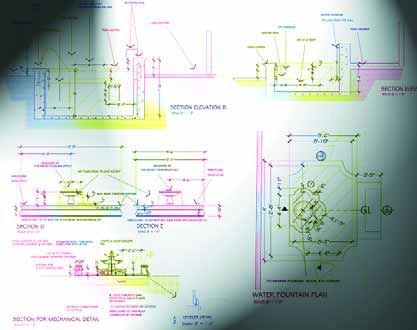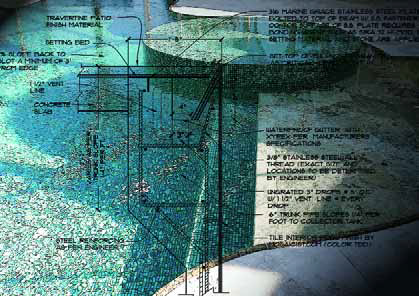watershape design
Thomas Jefferson was a founding father of the United States in more ways than one. Indeed, the author of the Declaration of Independence was also an architectural scholar and dedicated adherent of the philosophy and style of Andrea Palladio (1508-1580), an architect of the Italian Renaissance who
I’ve spent 50 of my years living in Southern California – an exhilarating half-century in which I’ve spent a lot of time, man and boy, in the presence of watershapes of various forms and sizes. The experiences I’ve had have filled me with opinions about the nature of these bodies of water and their accoutrements, so
By Jim McCloskey Few people in the industry know about it, but WaterShapes once tried to…
{Multithumb} Artificial rockwork is hardly new. In fact, its roots stretch back more than 100 years to Germany, where it was used for the first time to enliven zoological exhibits. Those early examples of artificial rockwork were decidedly crude – nothing more, really, than solid mounds of dumped concrete – but they met a need that couldn’t be accommodated by natural stone and made it possible to display hoofed stock (including antelopes and gazelles) on raised, natural-seeming terrains. Those early efforts were far from beautiful, and it’s no stretch to say that things have come a long way in the century since those first attempts took shape. Indeed, those of us who’ve worked in artificial rock for any length of time are proud to have witnessed the product’s evolution to a point where materials and techniques are now applied that are capable of transforming otherwise mundane settings into scenes of striking, naturalistic beauty. Certainly, deploying natural rockwork is another means of achieving the same end, but success often involves
What happens when you take a large group of landscape architecture students and, for a solid week, rigorously school them in the fundamentals of watershaping? You might be surprised: Even though that seems like a short span, my charges took to watershaping like fish to water when I introduced them to the subject this past spring - and the results were both remarkable and inspiring. As their instructor, I witnessed not only their keen interest but also saw ample evidence that they were applying highly refined design processes and quality design productions in their watershape-related coursework. So despite what some skeptics have been telling me for years, you actually can
In December 2004, WaterShapes introduced ‘The Platinum Standard,’ a registry of projects that embodies watershaping…
It’s true for any watershaper: No matter how varied the work you do, it never hurts to be known for the ability to do something special – and for doing it exceptionally well. Through the years, for example, my firm has polished its ability to provide our clients with watershapes reflecting a wide variety of tastes, styles and features, but to an extent that sometimes surprises even me, we’re known among prospective clients for
It seems that everyone’s talking about “sustainability” these days, with the usual thought being that, as exterior designers, good environmental stewardship must be one of our main missions. But what is sustainability? What do watershapers need to do to encompass this philosophy? As important, what does it mean to our clients, and where are they in all of this? According the numerous sources I’ve consulted, sustainability is defined as striving for the best outcome for both human and natural environments, now and well into the future. In other words, it’s about





















